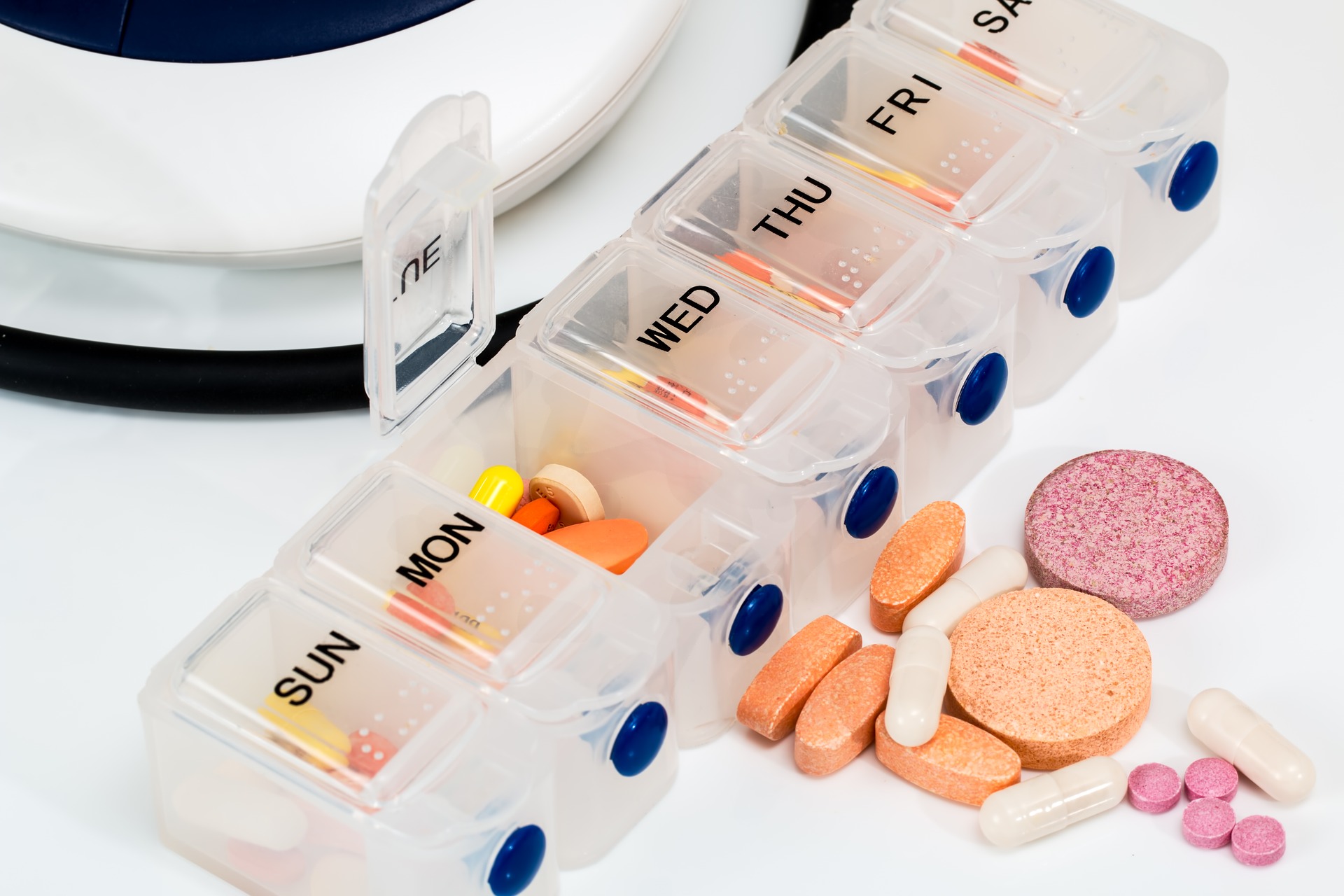Paracetamol and ibuprofen are both prominent painkillers. What number of these pills you can take in a day without overdosing? This is the most important question that you are going to know today in detail according to recent research.
Paracetamol and ibuprofen both are the most common painkillers that used globally. They may be used to treat sicknesses which include fever, flu, arthritis, period pain, migraines, leg pain, and many more uncomfortable situations.
Paracetamol reduces the severity of pain alerts to the brain. However, ibuprofen works by means of blockading the creation of prostaglandins, which the body produces in response to any illness or injury.
Both painkillers work quite differently though both painkillers can be used together in a certain situation.
However, it’s far critical not to go with over dosage of each of these pills. This is because in case you take too many paracetamol, it may prove deadly, or go away you with liver failure.
In addition, taking excessive doses of ibuprofen for extended time must raise your chance of coronary heart attack and stroke.
If you consider you could have taken too many painkillers, you should visit A&E immediately, and if viable, take the paracetamol packet or leaflet with you.
What number of paracetamol and ibuprofen can you safely take in a day?
NHS suggests that you don’t have to consume more than two 500mg paracetamol pills within the 24-hour duration. Moreover, you have to wait four hours between paracetamol doses, and leave an hour for having effective results.
Make sure if someone taking migraine pills or coughs and cold medicines, then taking paracetamol could be dangerous. It is only why these medications already contain paracetamol though taking extra paracetamol will be an overdose.
200mg Ibuprofen tablets are enough to take within every 4 to 6 hours for two days only. Doctors do not allow 1,200mg ibuprofen tablets – (six) 200mg ibuprofen in a day.
Be careful if you also are taking migraine treatments or the use of cough or cold medicines, like lemsip. As these components contain paracetamol and taking both together, you can increase the risk of overdose.
For ibuprofen, you need to not take extra than two 200mg pills every four to 6 hours, but you shouldn’t take extra than 1,200mg – or six 200mg drugs – within a 24 hour.
Its consequences have to be apparent quick after you’re taking it. You should always obey all the instructions at the accompanying leaflet for any painkiller. Its miles safe to take ibuprofen and paracetamol at the time
Paracetamol is recommended as one of the first treatments for ache because this is absolutely safe to take painkillers in any discomfort situation.
Further, the NHS advises that for those who want to take paracetamol and ibuprofen collectively, it is secure to take both doses at a particular time.
According to the NHS (National Health Service) “If you are 16 years or over then, you may use paracetamol and ibuprofen together to reduce pain and fever.”
As per on medical studies taking ibuprofen and paracetamol at the same time are not many harmful people above 16 years.
Am I able to take ibuprofen if I am already taking different medicines?
Make sure if you’re already taking any drugs, together with the ones offered without a prescription and herbal drug treatments, you need to constantly get advice out of your pharmacist before taking ibuprofen, to ensure the combination is secure or not?
You are extra at risk of ulceration or bleeding in your intestine in case you take ibuprofen with corticosteroids along with prednisolone.
There will also be an accelerated chance of bleeding within the gut if you take ibuprofen with other drug treatments that may increase the risk of bleeding.
If someone is taking Alendronic acid, then it will be good to avoid ibuprofen. On the other hand, when a doctor recommends this dose, then it will be okay at all.
Morally ibuprofen increases the irritation at certain internal organs like food pipe, stomach, and intestinal way.
Let me share you some other drugs that are not good for your kidneys if you consider ibuprofen with these and these are;
- ACE inhibitors, eg enalapril, captopril
- ciclosporin
- diuretics, eg furosemide
- tacrolimus
Moreover, ibuprofen raises blood level and gives high side effects if you take it with these medicines without your doctor’s recommendations.
- digoxin
- lithium
- methotrexate
If a person takes ibuprofen with quinolones like norfloxacin and ciprofloxacin, then it will increase the risk of fits (seizures.) This risk could be high for those who are surviving with epilepsy.
Suggestion from babyhealthcaree:
It is crucial to tell your doctor or pharmacist if you’re already taking any medicines. Visit your doctor and discuss before taking any new medicines with ibuprofen, to make sure that their combination will be safe or not?
Can I give paracetamol with ibuprofen to my baby?

Please do not give infant paracetamol and ibuprofen at the same time, unless recommended by a childcare expert.
In case you give both paracetamol and ibuprofen together to your baby, and he/she is nonetheless distressed before the next dose, then you could try another medicine.
Do not switch doses of paracetamol and ibuprofen until recommended by a healthcare expert.
Before giving your toddler a medicine, please read the packet or leaflet internal the drugs packet. Take a look at it is suitable for the baby the regular dosage and time period for your baby.
Further, you can ask a pharmacist if you’re not quite sure. The children are very sensitive, and the medication advice should be unique for children over 16 and adults.
When should I give paracetamol or ibuprofen to my baby?

If you think your baby has a mild ache, a fever, or inflammation, then you can give him/her a particular dosage of paracetamol /or ibuprofen according to age and weight.
Discomfort – Pain:
A lot of injuries and sickness may cause pain in children. Adults can frequently tell what type of ache they are having; however, babies are unable to brief. Being a caretaker, it is our duty to observe the baby’s health and overall condition.
Let me share some key condition that will confirm that a baby is not well and need some extra care!
• Crying or screaming
• Pulling a face
• Modifications in sound asleep and consuming styles
• Being quiet and withdrawn
• Do not want to move, or no longer able to get cozy
Look if your infant appears ill, or in mild to severe pain, he/she needs to be examined by a pediatrician/physician to determine the health.
Fever:
Infection is a common cause of fever (the body temperature rises up to 38oC) in babies. In fever, the body’s immune system fights against the infection (internally/externally), and it gets hot.
Often a baby’s immune system can easily manage their temperature (38-38.5oC) even in infection some may have a fever. You may give some regular fluids to your baby in fever like (cordial, fruit juice water, and many more.)
For a 6 months old age baby extra amount of breastfeeding is the best (treatment) diet in fever. In case miserable situations, ibuprofen, and paracetamol are considerable for babies. These medicines work great to make a baby more willing to have water or other fluids.
Don’t forget that in the fever, hydration is the most important.
The majority parents go to the doctors when their baby’s fever does not come down even after giving a fever medicine. According to medical research, there is no clue about the fever that it harms a baby’s brain/another body part.
However, many parents do not focus much on bringing down the fever itself, but only they want to see their baby in comfort.
Keep in mind if your baby is quite feeling comfortable with a burning body, then there is no need for ibuprofen or paracetamol.
Infection:
Some sicknesses can cause infections such as; redness, over the hot body, swelling, etc.) As ibuprofen is an anti-inflammatory medicine, though, you may get benefit from this. For injuries, sore throat, tonsils, ear infection, and other severe infections, you can consult a pediatrician.
When should you use both paracetamol and ibuprofen?
According to the research, there is no particular benefit of combining both ibuprofen and paracetamol for treating fever. It is why we must recommend only one medicine for high temperature.
For pain or discomfort, ibuprofen and paracetamol works the same and gives you significant relief. Both of these medications improve pain and fever at the same time. You may observe one of these, and if not working, then try another one alternative.
I hope your child will have complete relief relaxation from anyone or both of these. Keep in mind if both not work, then there is no need to increase the dosage or change time instead of consulting a doctor.
Is it safe to take paracetamol and ibuprofen together at the same time to my baby?
Well, the very quick answer to this question is yes! As paracetamol and ibuprofen are not reactants with each other so you can give it to your baby at the same time. By giving these medicines together at the same time can make you are confused about the dosage sometimes.
Keep in mind that:
- You can give paracetamol within every 4 to 6 hours (four doses in a day maximally)
- You can give ibuprofen within 6 to 8 hours (three doses in a day maximally)
- Shake well before use syrup and check the label to confirm the dose as per on the weight and age.
Should I give ibuprofen with food or breastmilk?
Experts recommend that give a painkiller before giving food or milk etc. this way, the medication works faster and makes a baby well in health. It is because, in an empty stomach, the medicine absorbs quicker and gives instant results.
It is why (AMH) Australian Medicines Handbook has currently changed its guidelines that taking medicine with water and empty stomach works quickly without causing any harm.
Although if your child makes any complaint with an empty tummy, then avoid and next time give medicine after an hour of mealtime.
Tips for parents:
Well, giving syrup to a baby is not as easy as you think; it makes many parents confused about how to convince a baby? In my experience here, I have shared some working tips for those parents who don’t want to make their babies throw up for syrup.
- Do not squirt the medicine in the front of the middle of the mouth; this way, the baby can easily spit it out.
- Use a new syringe instead of a spoon and put this in the bottom of the baby’s mouth.
- Make sure the baby’s head should be up.
- Push the syringe slowly and let the baby swallow the medicine; once he/she done and press again. The 5ml of syrup should be given in 3 pushes.
- You may give a few sips of water once the baby has done.
When to see a doctor?
For avoiding any danger, you should consult a doctor if you see any of the given symptoms within or after taking ibuprofen and paracetamol.
- Skin reactions or rashes
- Yellow skin spots or yellowish eyes
- Abdominal pain
- Asthma
- Tightness in chest or throat
- Swelling on the face or other body parts
- Breath congestion
If anyone has an early health history, then they should avoid both medications at once in the time. If you are regularly taking other medicines, then please consult your doctor before taking ibuprofen and paracetamol at the same time.
Often medication can interact and can make you harm. Especially for corticosteroids (blood thinner) takers, I would like to suggest avoiding taking these medicines. In pregnancy, women should also take ibuprofen and paracetamol at the time with a doctor’s prescription.



